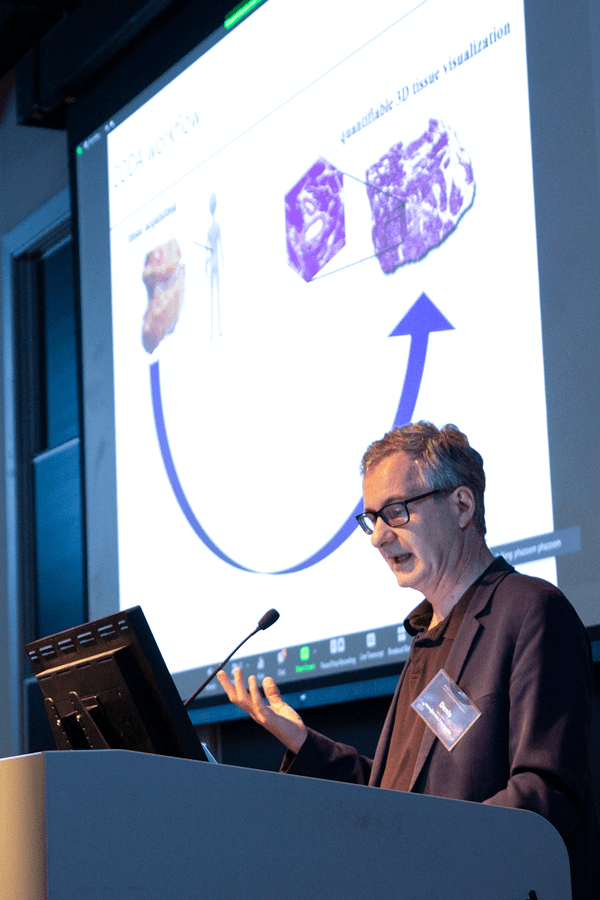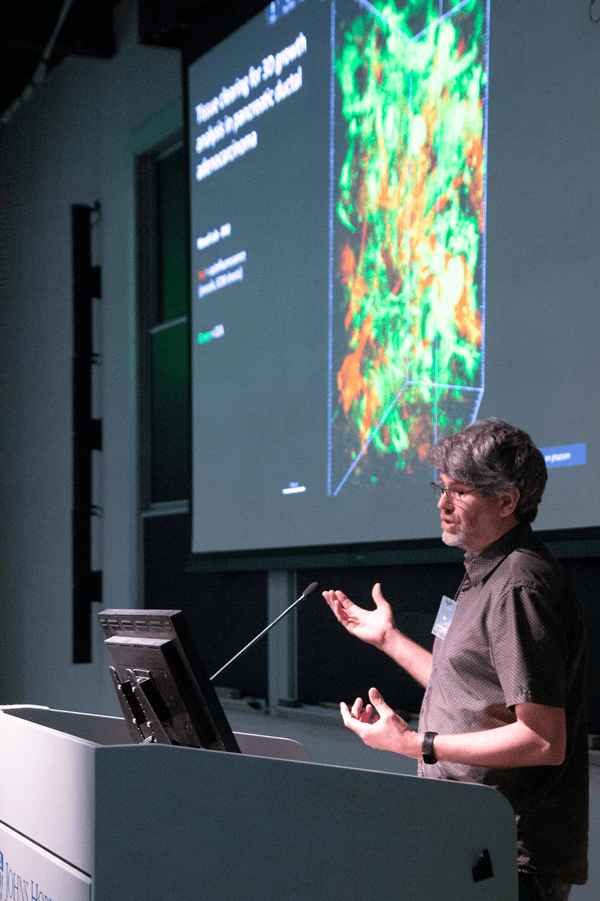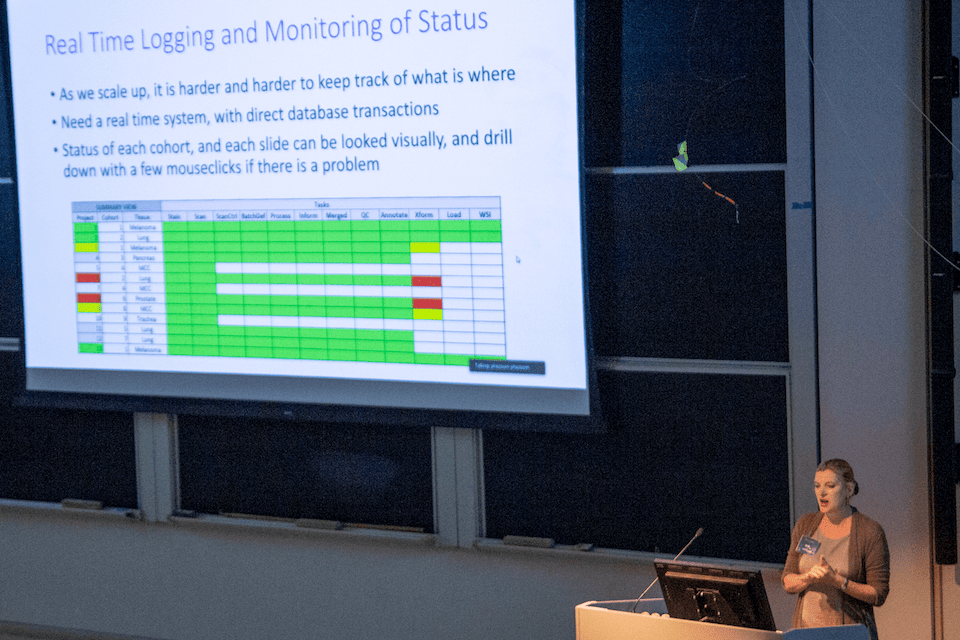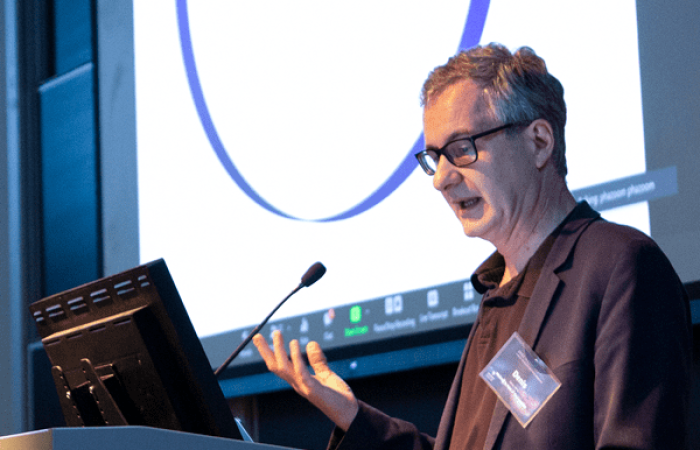On June 16th and June 17th, the Scientific Software Engineering Center (SSEC) at JHU hosted its inaugural workshop on large-scale scientific imaging in conjunction with the launch of the SSEC, operating as part of the broad AI-X effort and funded by Schmidt Futures.
The area of large-scale scientific imaging forms one of the pillars of the emerging AI revolution in science, as the explosion of scientific data is mostly due to the advancement of imaging technologies.
This topic is the common thread across almost all scientific disciplines, cancer research, medicine, including radiology, brain research, astronomy, climate observations, materials science, cell biology. Furthermore large scale numerical simulations can create ultra-high-resolution images of observable phenomena—from turbulence to climate models and ocean circulation patterns.
The difficulty arises in that most of these data sets are well past the Terabyte scale with even mid-scale instruments capable of generating several petabytes per year. Currently the handling of these data sets is balkanized, mostly done in a one-off fashion by the experiments.
This workshop brought together different research communities to address these outstanding problems, discuss commonalities, identify differences, and discover how one can use better economies of scale in creating and managing such large image archives. The goal is that the collated, cross-disciplinary knowledge will lead to develop ways to interface these image archives to existing AI environments and shorten the path to create novel AI applications for training and inference.





